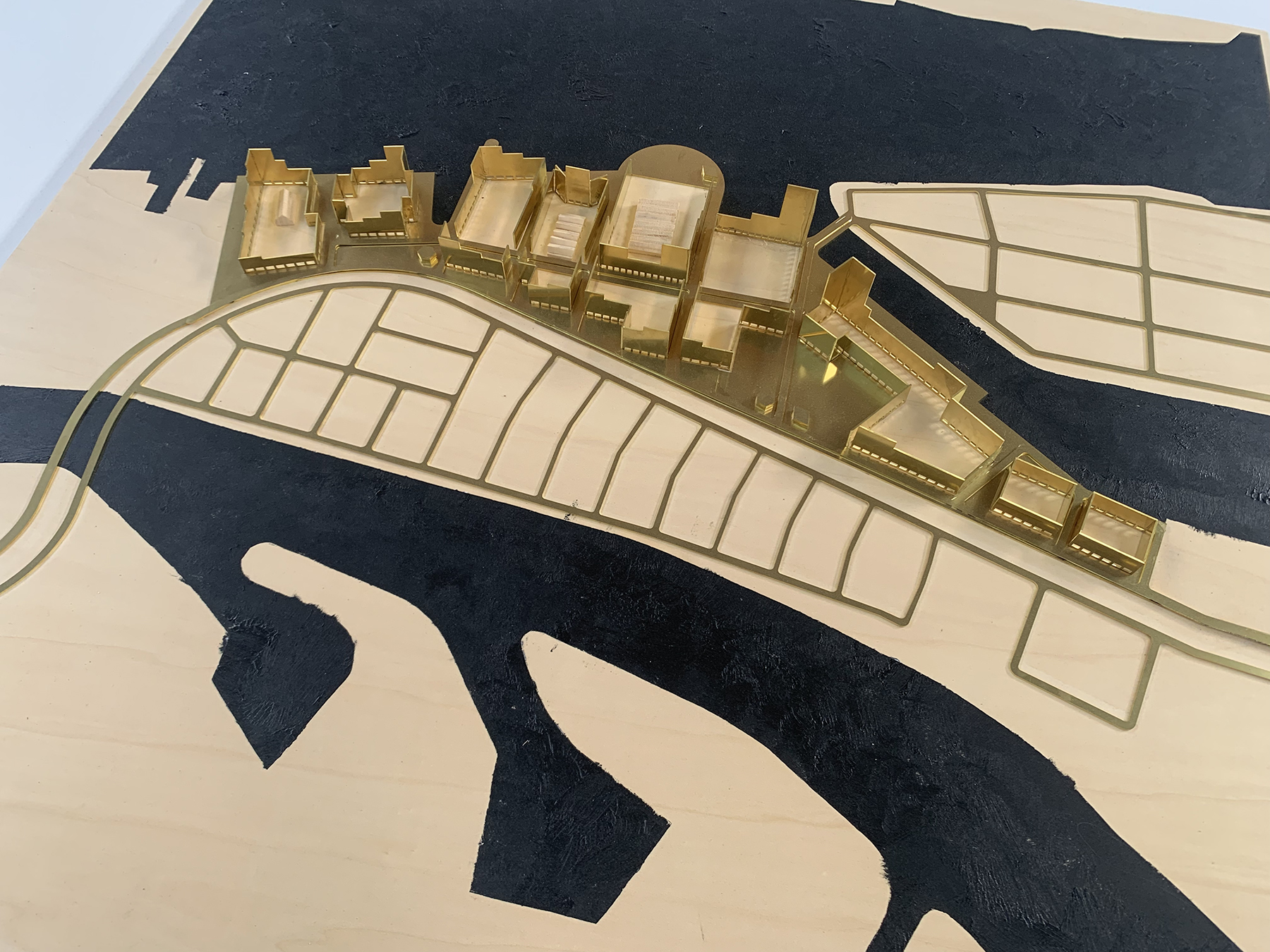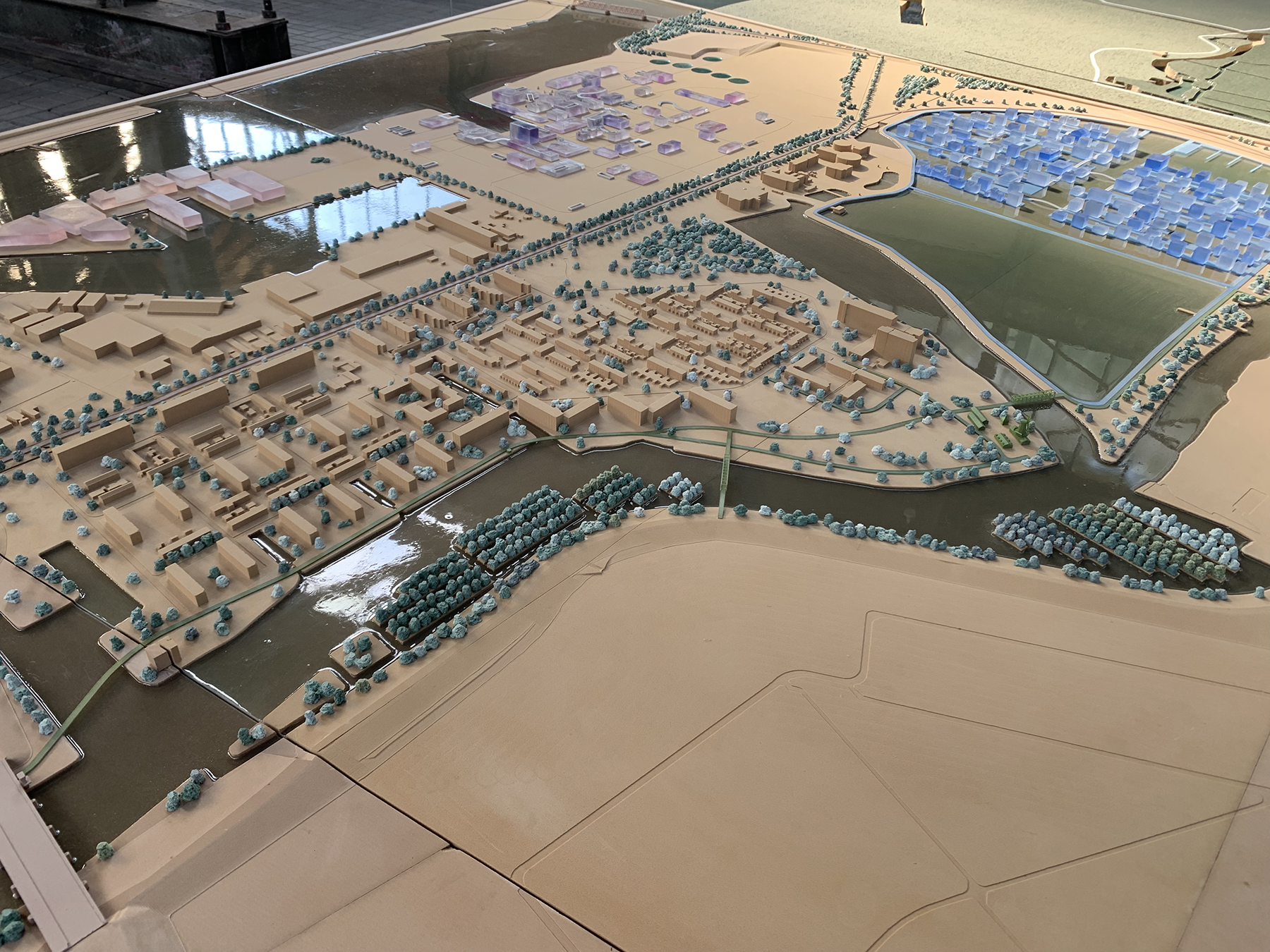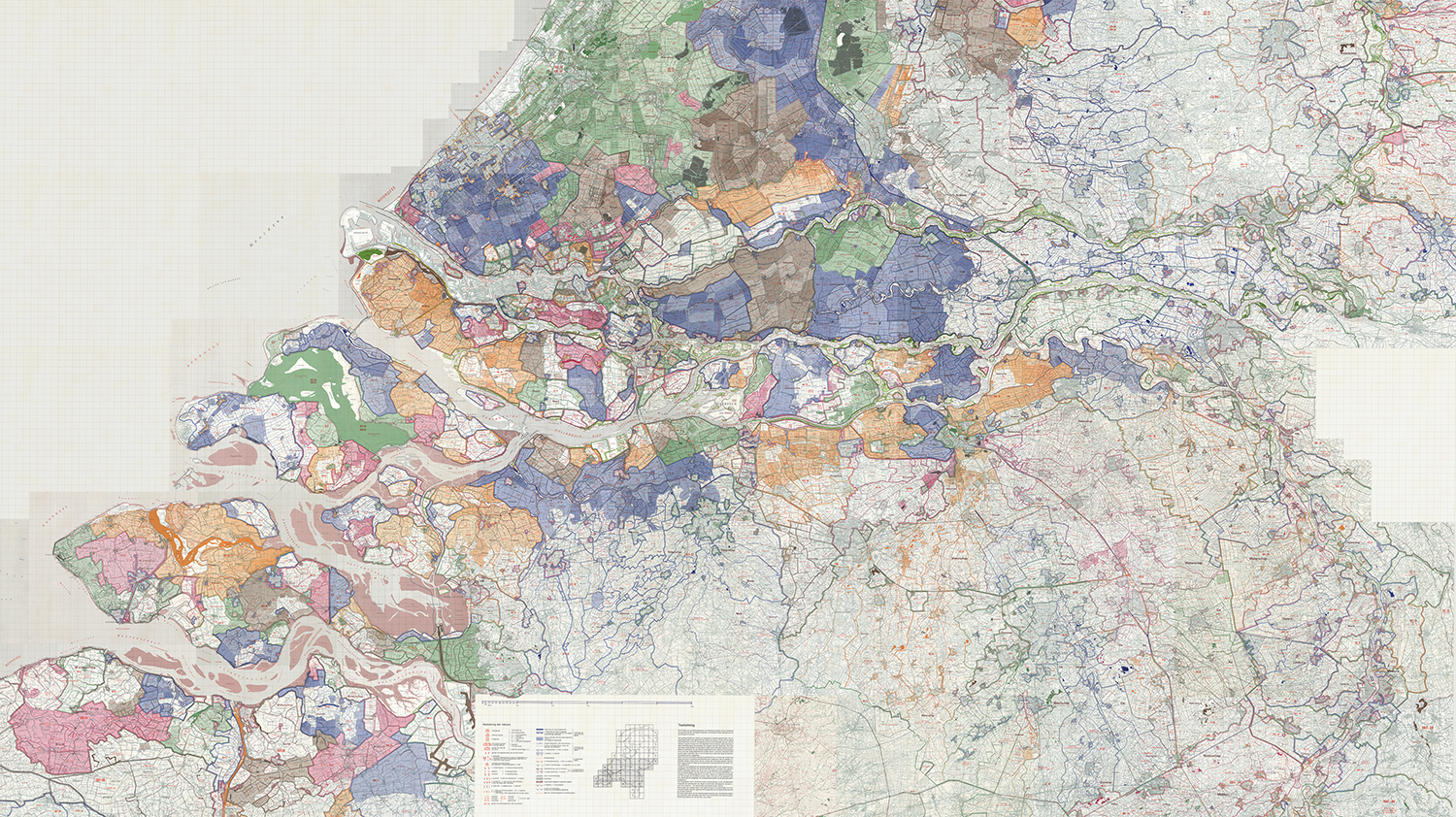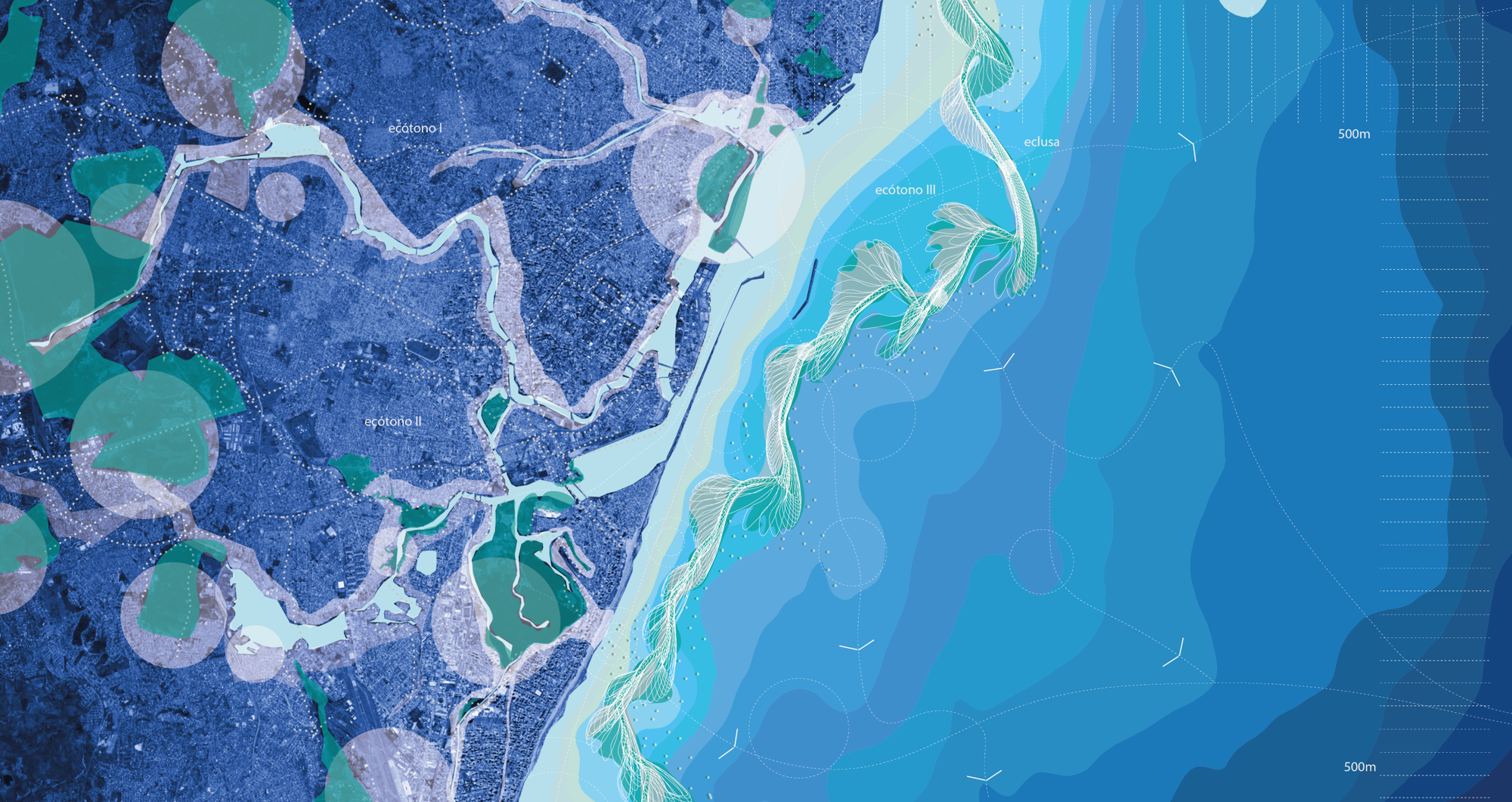-
Chris Zevenbergen (1958) is professor of Delta Urbanism at the Department of Urbanism at TUDelft and professor of Flood Resilience at the Water Engineering Department of IHE Delft and at TUDelft, The Netherlands. He is also a visiting professor at the Southeast University (SEU) and at the North China University of Water Resources and Electric Power (NCWU). He was a Member of the Board of the Public Private Innovation Platform Clean Tech Delta, The Netherlands in 2013 and 2014 and of the Netherlands Partnership (NWP) from 2010 to 2013). He is now chairman of the Academic Board of the MSc program River Delta Development of three Applied Universities in The Netherlands, and project director of DeltaCAP, a Dutch funded program on capacity development to support the implementation of the Bangladesh Delta Plan 2100. He worked as a researcher on various environmental issues related to the building industry, such as environmental impact assessments, product development, emission modeling, testing procedures, building codes and guidelines in the 1980s followed by 20 years international research and consultancy in environmental engineering and water management of urban systems. In the past 15 years he has accumulated extensive national and international experience with integrated approaches to manage floods in urban environments. His research interest is specifically on innovative concepts to mitigate urban flood impacts, on flood proofing building designs and technologies and on decision support tool development in urban planning with practical application in urban flood management and climate adaptation. He has a strong affinity with the ecological, socio-economic, institutional aspects of urban planning and water management. Therefore, he considers himself more a generalist than a specialist. He has published/edited five books and more than 120 scientific publications in the field of environmental engineering and urban flood management. He was co-founder and chairman of the European Network COST C22 on Urban Flood Management. He chairs the Flood Resilience Group (FRG) of IHE Delft. He participates in various national and international advisory boards of governmental and scientific institutions (e.g. IPCC EM Infra, Rotterdam Climate Proof, Environmental Science Group Wageningen, iBuild, DLR Future Mega Cities, EPSRC, Delta Alliance, Dutch Delta Plan, Room for the River program).
-
Ellen Tromp obtained her Master of Science in Water Management (2005) from Delft University of Technology and in 2012 the Master of Science in Public Administration from Erasmus University Rotterdam (The Netherlands). Ellen started in 2006 at Deltares, an independent knowledge institute for applied research in the field of water and subsurface. Initially, she was involved in projects on water robustness and settlement-free development of locations with soft soils. Tight coupling of spatial planning and flood risk management (FRM) has created opportunities to incorporate water management measures in urban (re) construction and landscaping that call for more integrated design processes, and for strategies that also address governance and funding. Presently, Ellen is mainly active in interdisciplinary projects in the field of water, subsoil and spatial planning, with a focus on flood resilient landscapes. The flood resilient landscapes concept offers the prospect of keeping the Netherlands safe beyond 2100 at socially acceptable costs and with public support now and in the future, and paves the way towards implementation throughout international deltas. Ellen is co-coordinator of the initiative Redesigning Deltas. Among others, Ellen is programme leader of the Deltares research programme River basins and estuaries, and is coordinating the partnerships with regional governments.
-
Dr. Fransje Hooimeijer is an Associate Professor at the Section Environmental Technology and Design and Research Programme Leader Delta Urbanism, Faculty of Architecture and the Built Environment, Delft University of Technology.
She studied Architecture at the Willem de Kooning Academy and Arts and Culture Studies in Rotterdam Erasmus University. Since 1997 she works as an independent researcher in the fields of architecture, urban design and landscape architecture. In addition to various publications and exhibits, she has done research for governments and corporate clients. She received her PhD in Urbanism from the Faculty of Architecture at the Delft University of Technology in 2011 with the dissertation investigating the relation between water management and urban design. From 2009-2012, she has worked as a researcher at the TU Delft and at TNO, investigating the technology of urban development in the light of climate change and the energy transition. One of her main research topics is integrating the subsurface system into above-ground spatial development. Since 2012 continuing research and teaching at TU Delft into system integration of technical systems of urban development in national and international context. She is specialised in interdisciplinary design processes, methods, tools and theory, transferring this to students and practice.
-
Dr.Arch. Taneha Kuzniecow Bacchin is an Assistant Professor at the Section Urban Design and Research Programme Leader Delta Urbanism, Faculty of Architecture and the Built Environment, Delft University of Technology. She is an architect, urban designer, and researcher working at the intersection between urban design, landscape architecture, and environmental sciences.
In her projects, she investigates the nexus between space, ecology, culture, and politics in the design and planning of critical and highly dynamic landscapes. Her current work focuses on situated (site/context/culture-sensitive) forms of urban design related to environmental fragility, increasing extreme weather events and climate, and resource depletion, with projects in the North Sea, the Arctic, Brazil, South Africa, and India. Her interest lies in the critical role of urban design and territorial architecture (morphology, composition, materialisation) in places characterised by high dynamicity (continuous and/or disruptive change): ‘extreme/ transitional territories’ altered by the effects of the climate crisis, large-scale extractivism, and new frontiers of urbanisation. She is head of Transitional Territories Graduation Studio, and editor of the Journal of Delta Urbanism. Her work has been funded internationally and exhibited at the São Paulo Architecture Biennale 2013 and the Venice Architecture Biennale 2002 and 2018 (Dutch, Brazilian and Venetian Pavilions). Starting in 2019, she is the Principal Investigator and Lead Coordinator of the NWO-DST ‘Water4Change’ (W4C) Research Programme, Cooperation India-The Netherlands (2019-2024).
-
Dr. Nikki Brand is a Interdisciplinary Scientist at Strategic Development Delft University of Technology.
Her work departs from the observation that the global need for flood resilience is driven by two forces: climate change and a concentration trend in the urbanization process. Although the clash between both is a real concern, the dynamic urbanization process itself is also an opportunity to push for flood resilient development. This, however, requires a coordinated response: often at the regional scale that tends to be governed in a fragmented manner, and from parties that govern different components of the urban fabric that are not aware of their potential contribution. Such a response can only be established from a system’s perspective that identifies cities’ particularities and latent strengths, that can be linked to a diverse set of integrated design responses from spatial designers and civil engineers alike. Nikki’s core academic discipline is urban planning with spatial design, flood risk management and public administration as secondary fields of expertise. She welcomes excellent students that aim to identify strategic leverage for flood resilient development of urban regions in both centralized and decentralized governance systems.
-
Geneviève Girard studied Biochemistry at the École Normale Supérieure in Cachan (France) and Biology at the University of Leiden. She obtained her PhD in Molecular Microbiology at the University of Leiden in 2006. After a short experience at Crucell B.V. as Scientist Molecular Virology and some teaching for her education certification (Agrégation SVT), she resumed her research and education career at the University of Leiden (viral RNA’s, antibiotic discovery, bioinformatics) and at the University of Amsterdam (bioinformatics).
Since 2017 she has been working at TU Delft as senior policy and strategy advisor to the Executive Board at the Delft University of Technology (department Strategy Development). Next to data analyses for data-driven decision making, she has been involved in setting-up the Convergence Alliance with the Erasmus University of Rotterdam, and in particular the Resilient Delta initiative. Next to her role in topics such as the new TU Delft Strategy 2030 and Knowledge Security, she is involved in Redesigning Deltas by connecting with other initiatives and giving advice on processes and strategy.
People
An initiative by the Delta Urbanism Interdisciplinary Research
Programme—Redesigning Deltas, Delft University of Technology
Partners:
Convergence Alliance-Resilient Delta
Deltares
Wageningen University & Research
The Delta Commissioner
PBL Netherlands Environmental Assessment Agency
IHE Delft
Erasmus University




